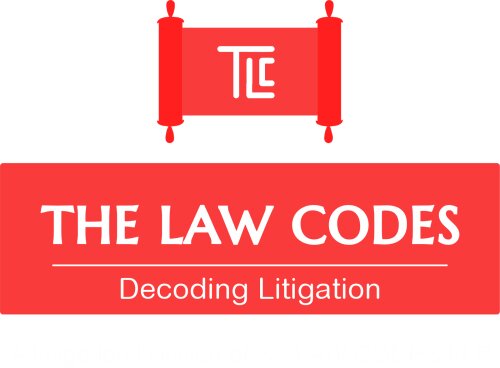Best Fintech Lawyers in Chandigarh
Share your needs with us, get contacted by law firms.
Free. Takes 2 min.
List of the best lawyers in Chandigarh, India
About Fintech Law in Chandigarh, India:
Fintech, short for financial technology, is a rapidly growing industry that combines financial services with technology. In Chandigarh, India, Fintech companies offer innovative solutions in areas such as digital payments, peer-to-peer lending, crowdfunding, and cryptocurrency. With the rise of Fintech, there is a growing need for legal guidance to navigate the complex regulatory environment.
Why You May Need a Lawyer:
There are various situations where you may require legal assistance in the field of Fintech. Some common scenarios include setting up a Fintech business, obtaining licenses and permits, drafting contracts, compliance with regulatory requirements, protecting intellectual property, handling disputes, and navigating tax implications. A lawyer specializing in Fintech can provide valuable guidance and support in these matters.
Local Laws Overview:
In Chandigarh, India, Fintech companies are regulated by the Reserve Bank of India (RBI) and the Securities and Exchange Board of India (SEBI). Key aspects of local laws that are particularly relevant to Fintech include the Payment and Settlement Systems Act, Information Technology Act, Foreign Exchange Management Act, and various guidelines issued by regulatory authorities. It is important to comply with these laws to ensure the smooth operation of your Fintech business.
Frequently Asked Questions:
1. What regulations apply to Fintech companies in Chandigarh, India?
Fintech companies in Chandigarh, India are regulated by the Reserve Bank of India (RBI) and the Securities and Exchange Board of India (SEBI), among other regulatory authorities.
2. Do Fintech companies need to obtain any licenses or permits?
Yes, Fintech companies may need to obtain licenses or permits from regulatory authorities such as the RBI or SEBI, depending on the nature of their business.
3. How can a lawyer help with setting up a Fintech business?
A lawyer can assist with entity formation, drafting legal documents, obtaining necessary licenses, ensuring compliance with regulations, and protecting your intellectual property rights when setting up a Fintech business.
4. What are the key compliance requirements for Fintech companies?
Key compliance requirements for Fintech companies in Chandigarh, India include data protection laws, anti-money laundering regulations, consumer protection laws, and cybersecurity standards.
5. How can a lawyer help with regulatory compliance?
A lawyer specializing in Fintech can help you understand and comply with regulatory requirements, navigate the licensing process, draft compliant contracts, and represent you in regulatory inquiries or enforcement actions.
6. What are the risks of non-compliance for Fintech companies?
Non-compliance with regulatory requirements can lead to fines, penalties, reputational damage, and even the shutdown of your Fintech business. It is crucial to prioritize compliance to mitigate these risks.
7. What legal issues may arise in Fintech partnerships?
Legal issues in Fintech partnerships may include intellectual property rights, liability allocation, dispute resolution mechanisms, data sharing agreements, and exit strategies. A lawyer can help draft clear and comprehensive partnership agreements to address these issues.
8. How can a lawyer assist with intellectual property protection for Fintech companies?
A lawyer can help Fintech companies protect their intellectual property assets, such as trademarks, copyrights, and patents, through registration, licensing agreements, enforcement actions, and due diligence in mergers and acquisitions.
9. What are the tax implications for Fintech companies in Chandigarh, India?
Fintech companies may be subject to various taxes, including income tax, goods and services tax (GST), and withholding tax. A lawyer can help you understand your tax obligations and optimize your tax position.
10. How can I handle disputes related to Fintech transactions?
If disputes arise in Fintech transactions, a lawyer can help negotiate settlements, represent you in mediation or arbitration proceedings, file lawsuits in court, and enforce judgments. It is important to have a legal strategy in place to resolve disputes efficiently.
Additional Resources:
For more information on Fintech regulations and resources in Chandigarh, India, you can refer to the websites of the Reserve Bank of India (RBI), Securities and Exchange Board of India (SEBI), Ministry of Finance, and other regulatory authorities. Additionally, you may seek guidance from industry associations, legal organizations, and professional networks specializing in Fintech.
Next Steps:
If you require legal assistance in the field of Fintech in Chandigarh, India, it is advisable to consult with a lawyer who has experience and expertise in this area. You can schedule a consultation to discuss your specific legal needs, evaluate your options, and develop a customized legal strategy to achieve your business goals while staying compliant with the law.
Lawzana helps you find the best lawyers and law firms in Chandigarh through a curated and pre-screened list of qualified legal professionals. Our platform offers rankings and detailed profiles of attorneys and law firms, allowing you to compare based on practice areas, including Fintech, experience, and client feedback.
Each profile includes a description of the firm's areas of practice, client reviews, team members and partners, year of establishment, spoken languages, office locations, contact information, social media presence, and any published articles or resources. Most firms on our platform speak English and are experienced in both local and international legal matters.
Get a quote from top-rated law firms in Chandigarh, India — quickly, securely, and without unnecessary hassle.
Disclaimer:
The information provided on this page is for general informational purposes only and does not constitute legal advice. While we strive to ensure the accuracy and relevance of the content, legal information may change over time, and interpretations of the law can vary. You should always consult with a qualified legal professional for advice specific to your situation.
We disclaim all liability for actions taken or not taken based on the content of this page. If you believe any information is incorrect or outdated, please contact us, and we will review and update it where appropriate.








